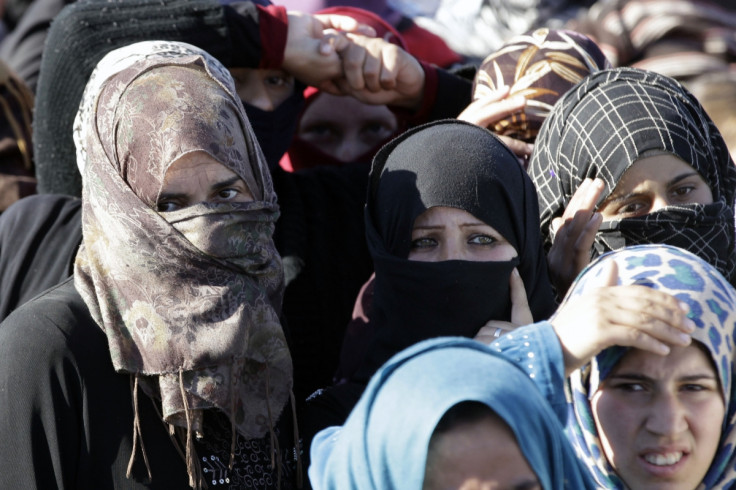Syrian conflict: Refugees fleeing to Jordan stuck on border in dire conditions

Thousands of Syrians, including women, children and the elderly are fleeing to Jordan through the north- eastern border braving thirst, hunger and a rough terrain. The International Red Cross says they get stuck in the border area between Jordan and Syria known as the berm, a place sans vegetation and water.
The Globe and Mail reports that the hardest hit are pregnant women, nursing mothers, the wounded and the old. The Jordanian border force, which controls the area, says there has been a rapid increase in the number of refugees – from 3,000 in mid-September to nearly 17,000 this week.
"The more attacks and air strikes there are, the more injured people and refugees there are. These people didn't come over a long time. They came in a short period of time, when attacks intensified," Brigadier General Saber Taha Al-Mahayreh, the head of Jordan's border forces, is quoted as saying.
Nearly 1,000 arrive each week, many from places like Homs, Hama, Raqqa and Deir ez-Zour which have been destroyed by Russian and coalition air strikes.
During the first two years of the Syrian conflict, there were 45 crossing points along the 378 km (235 miles) frontier. According to UNHCR, now only two remain open, in rocky, hard to access areas devoid of water, shade or vegetation. One of them is at Hadalat, 500 km north-east of the Jordanian capital Amman, while the other is at Rokbane, 70 km further east.
General Saber Al-Mahayra, the head of Jordan's border guards unit, said at least 1,300 Syrians were stuck in Hadalat while in Rokbane 15,000 were trapped in dire conditions.
Government spokesman Mohammad Al Momani said though Jordan is committed to an open-door policy, it has reached its limits of accommodating Syrian refugees who now number 1.4 million, equivalent to 20% of its population.
But humanitarian agencies are of the opinion that Jordan should do more. Andrew Harper, the head of the UN's refugee agency in Jordan, said refugees cannot be given shelter in a war zone.
"If you have a camp set up in an insecure area, it would be impossible to provide the necessary protection and assistance. To do this, we need constant access, which, due to the extreme location and insecurity, is not so simple," he said.
Since March 2015, the Red Cross, in coordination with the Jordan Red Crescent Society, has been providing food, water and health care to people at the berm near the two crossing points of Hadalat and Rukban .
© Copyright IBTimes 2025. All rights reserved.





















